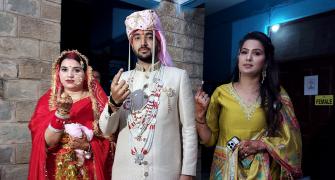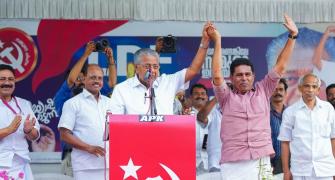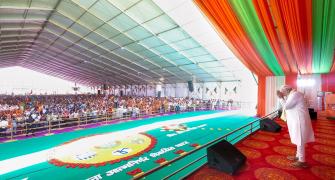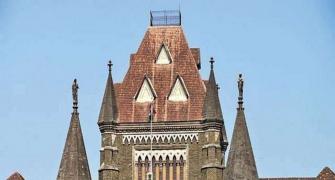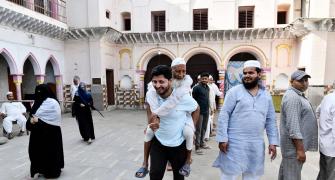Last week, BJP General Secretary Pramod Mahajan invited journalists to the party's central office for an unusual briefing. Amid the tut-tutting of those who persist in compartmentalising the country into a flashy India and a sedate Bharat, he made a lucid power-point presentation on the way the BJP will use technology to communicate with the voters. At a time when India Shining also flaunts its success in connecting people, Mahajan's approach made eminent sense both in terms of reach and cost-effectiveness.
More to the point, at a time when the appeal of public meetings is diminishing and the size of constituencies make it impossible for a candidate to personally reach all voters, technology complements traditional campaign methods. If healthy democracy is also about people exercising informed choice, new communication methods help bridge the divide between politics and people. This is as true for India as it is for Western democracies.
It is for this reason I find the Election Commission's latest directive banning the use of political advertisement on television (and, I presume, radio) completely inexplicable. Despite political advertisements being used in the final week of the election to the four state assemblies last December, the EC thought fit to revive its ban order of August 1999, citing the provisions of some obscure law as its defence. In most democracies, political advertising on television channels is the main instrument of communicating with the electorate. In the US, it is a straightforward commercial arrangement between the candidates and the channel. In Britain there is an attempt to establish a level playing field by giving each party-depending on its electoral importance-time slots for political telecasts on BBC and ITV. In India, we appear to have taken the pre-television route. Since the EC makes its own rules and is not accountable to anyone, it is anyone's guess why this regressive ban has been imposed. Once the code of conduct comes into force, the EC becomes the supreme authority in the land. There is no point in suggesting that advertising might influence the voters. The purpose of advertising is precisely to influence people. And if preventing voters from being influenced is what the EC is really after, will it also be analysing the content of news channels like Aaj Tak and NDTV? Someone can make a persuasive case to suggest that both channels are guilty of surrogate political advertising for one party whose leader is busy these days hosting dinners for editors and attending lunches hosted by them. As an institutional mechanism to guarantee free and fair polls, it is important to have an independent EC. The question is: how does the EC use its independence? The time may have come to pose this question. Since T N Seshan misused his authority to transform the EC into a vehicle of self-publicity, Nirvachan Sadan has proceeded on very curious assumptions. First, it assumes that democracy is a necessary evil and that elections must be held on sufferance. J M Lyngdoh even made it his business to try and not hold elections in Gujarat at all. Second, it believes that the political class is inherently disreputable and that its job is to make life as difficult as possible for all candidates. Far from facilitating healthy electioneering so that people can make exercise their choice freely and in an informed way, the EC has used its authority to cock a snook at the political class. The EC, it would seem, doesn't really feel for democracy. In 1996 and 1998, it began a monstrously expensive scheme to record the movements of every candidate and political leader on video. What came of this extravagant exercise? Who monitored those millions of miles of footage? Seshan began an elaborate exercise to give each voter an identity card. The programme was abandoned midway. Today, during every election you have lakhs of voters with identity cards whose names don't feature on the rolls. The EC doesn't deem it necessary to give answers to those who have been disenfranchised. Indeed, there is a boring and unglamorous part of the EC's job that has been neglected: to keep the voters lists accurate and updated. This is precisely the job that least interests Nirvachan Sadan. The electoral registers in India are full of distortions that are allowed to remain because they have not been rigorously scrutinised. Are the state election commissioners held accountable for their lapses? During the 2002 Gujarat election, it was discovered on polling day that some 30,000 people in an Ahmedabad constituency, where Narendra Modi was the candidate, had been left out of the electoral lists. Predictably, there were angry protests and the EC was contacted in Delhi. According to a senior BJP leader, a very big gun in the EC told him that if the party was dissatisfied with the lists, he would consider countermanding the poll in that constituency. Not surprisingly, the BJP glossed over the EC's lapse. But the devious way in which the complaint was handled suggests that democracy was not the uppermost concern in the minds of those entrusted to be the guardian of democracy. Here the EC was more interested in using a legitimate complaint to trip Modi at the last hurdle. For too long the EC has basked in the sunshine of media exposure; it has been kept outside media scrutiny. The amazing display of indulgence is unwarranted. Let the EC be accountable. Let its job be defined as democracy' s facilitator not obstructer.


